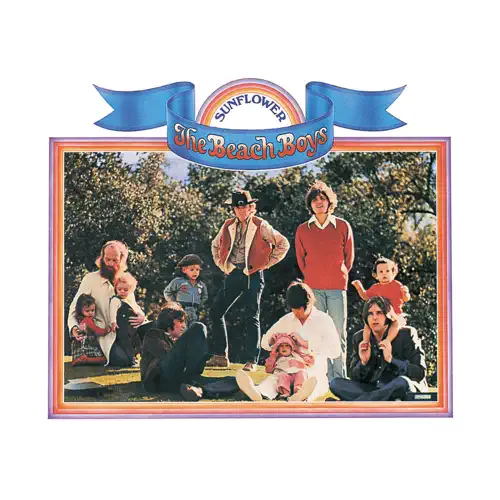Sad As A Guy Can Be – Storefront Church Reflects on Brian Wilson
- Josh Kitchen

- Jun 17, 2025
- 4 min read

By: Josh Kitchen / June 17, 2025
Last year, during our conversation about his outstanding 2024 album, Ink & Oil, Lukas Frank, aka Storefront Church and I discussed that record's influences, and when you hear the orchestrations and harmonies, it's not hard to come to the conclusion that Frank is another disciple in the church of Brian Wilson. Wilson's influence loomed large—not just in the production or songwriting, but in the emotional undercurrents that run through Lukas’s work. At the time, we focused on songs like "Surf’s Up," and the quiet genius of Wilson’s arrangements.
Now, in the days following Brian Wilson’s passing on June 11th, we find ourselves talking again—but this time about legacy, and about how his music shaped us and the world, and about the way his honesty, vulnerability, and story of survival continue to resonate just as powerfully as his harmonies.
In this conversation, Frank reflects on what it meant to live with Brian’s music—how it influenced his own artistic voice, how it gave permission to feel deeply and speak plainly, and how even in his pain, Brian found a way to return.

When you heard Brian Wilson passed away, what were you doing?
I was on the phone with someone, and I had to interrupt what they were saying to yell about the fact that Brian had died. A huge hero of mine—someone who made a massive impact on my music and my life.
It’s such a big loss. When I listen to your music, I feel the same emotional depth I get when I listen to Brian Wilson and the lyricism of his songwriting partners Van Dyke Parks or Tony Asher. When you started making music, were you thinking about Brian?
Brian’s music has been with me since I was a teenager. The record Sunflower was really important to me growing up. And of course, Pet Sounds—it’s so ubiquitous, it’s like it’s just in the ether. I was a huge fan throughout my adolescence.
When I was making Ink and Oil, I became obsessed with one song in particular—"Surf’s Up." I was picking apart the chords and lyrics, researching Van Dyke. The story goes that Van Dyke wasn’t even a Beach Boys fan before working with them, and he brought this dark edge to the music—this obtuse lyricism.

Brian’s lyricism is usually so plainspoken and earnest, which is really refreshing. But then you get something like “a blind class aristocracy” and other surreal lines. It gets heady and abstract, but it’s brought home in the final verse: “I heard the word / wonderful thing / a children's song.” That line always hits me emotionally. It’s not just cerebral—it’s still incredibly moving.
Even the fact that it’s called Surf’s Up—is so genius. "Surf’s up on the tidal wave," right? The way he was commenting on a sort of culture and mythos he helped create and popularize, that's something that not many artists at the time rarely did.
Exactly. It’s aged incredibly well. It’s still so relevant. A timeless masterpiece.
You mentioned Sunflower being a bonding record for you in high school. What did that album mean to you at the time?
That was a record I shared with a friend in my high school band. We’d talk about it after band practice. The song "Deirdre" stuck with me—there’s something so weird about it. I can’t tell who he’s singing to—a babysitter? A romantic partner? He talks about taking a bath... it’s misleading and strange, but we loved it.
Sunflower is just so fun to listen to. Pet Sounds is obviously revered—and rightly so—but sometimes that reverence can feel overwhelming. Smile too, though Smile is such a challenging record. Part of what makes it incredible is the myth around it.
Even though he dealt with so many demons and so much abuse, when I think about Brian Wilson, it’s a story that pretty much has a very happy ending. He dealt with all this shit, but then he got there. He was saved by people who loved him, and he got to go on and have like 25 years of this incredible, almost comeback—the renaissance.

I talk about Brian a lot with my best friend and scoring partner, Dan Meyer. We reference the Long Promised Road documentary all the time. There are moments in that film where Brian just says, “I’m sad,” or “I’m scared.” I just loved that about him. It feels like his songs sometimes—they were so plainspoken and direct. I really admired that. We reference it constantly. Like, “How you doing, Dan?” “I’m sad.” The Brian method.
It felt like we were all bracing for this loss for a while, but when it actually happened... it still hit hard.
I owe him so much. I think his best songs are like little trinkets you get to keep in your pocket. You carry them with you. They offer you so much, they become tools—and I've gotten so much out of it, and my life is certainly richer because of Brian Wilson.

Brian Wilson 1942 - 2025






Comments